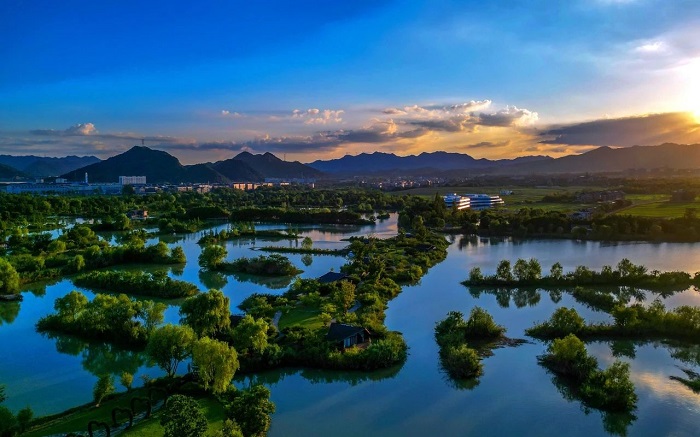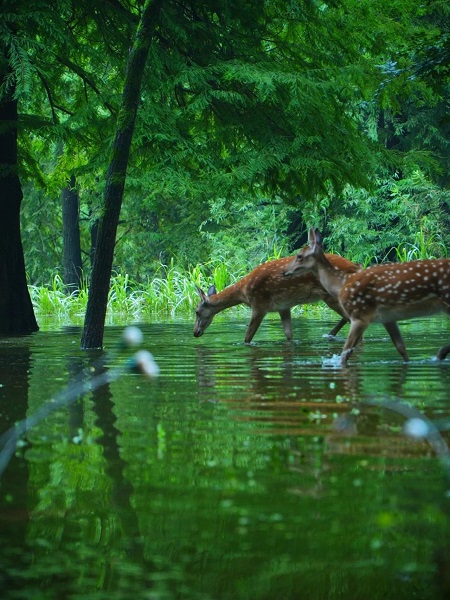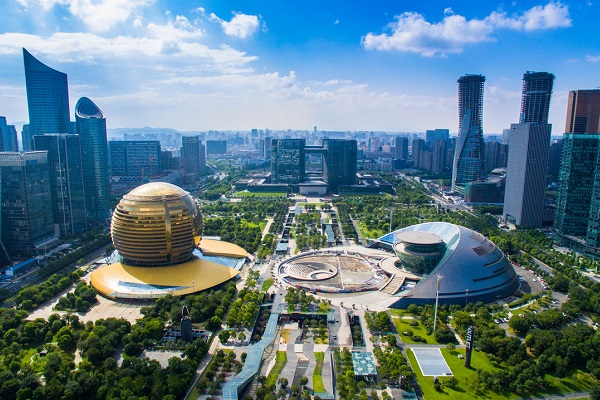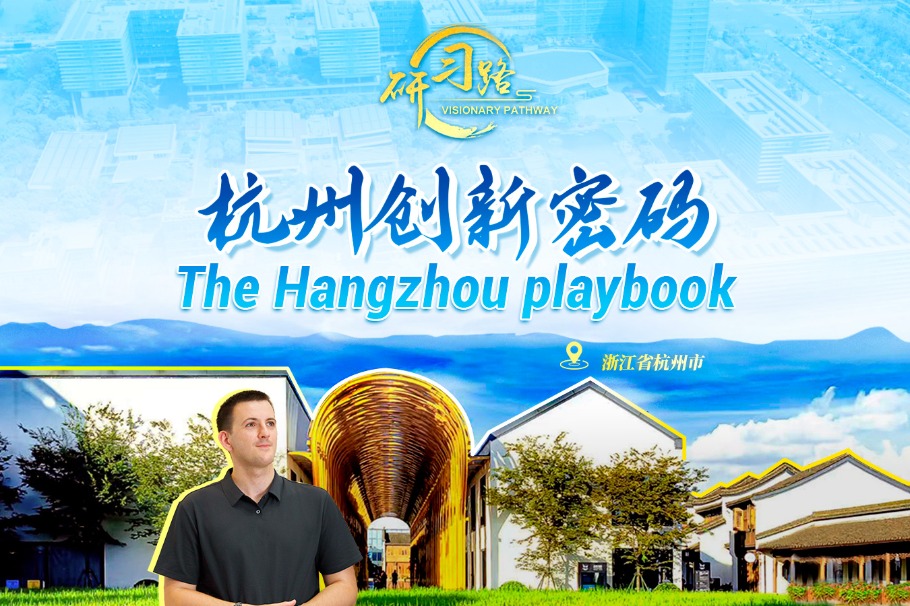City built on water: Hangzhou's wetland legacy goes global

A glorious bird's-eye view of the Yangbei Lake Wetland in Fuyang district. [Photo/WeChat account: gh_2b743761eac1]
Hangzhou was recognized as an international wetland city at the 15th Meeting of the Conference of the Contracting Parties to the Ramsar Convention on Wetlands in Zimbabwe on July 24 — making Hangzhou and Wenzhou the first cities in Zhejiang province to receive this global honor.
The recognition follows a five-year journey that reflects Hangzhou's commitment to wetland protection and its evolution into a model for balancing ecological conservation with urban development.
Legacy of water, culture
Hangzhou's relationship with wetlands traces back over 5,000 years to the Liangzhu Civilization, one of the earliest rice-growing societies in the world. The city's rich history — from Venetian explorer Marco Polo's praises of its water-linked beauty to classical poetry — reflects a deep bond between wetlands and urban life.
Today, wetlands cover 134,300 hectares, representing 8 percent of Hangzhou's land area and making it one of China's most water-abundant cities. It's also home to China's only national-level Wetland Museum.

Sika deer wade through water at the Qingshan Lake Wetland in Lin'an district. [Photo/WeChat account: linanfabu]
Smart, science-based conservation
Faced with shrinking wetlands due to urbanization, Hangzhou has launched innovative protection programs.
At Xixi Wetland, digital twin and IoT technologies enable real-time ecological monitoring — making Hangzhou a national pilot for digital wetland governance. In Fuyang district's Yangbei Lake, sponge-city techniques restored 30 hectares of wetland. In Xiaoshan district's Xianghu Lake, submerged vegetation has improved water clarity from 0.5 meters to over 1.2 meters.
Legally, Hangzhou enacted a wetland protection ordinance and launched Zhejiang's first municipal wetland association in 2024, granting ecological compensation annually for protected wetlands.
Ecology driving the economy
Wetlands preservation there has also become a green growth engine.
Xixi Wetland pioneered a park-oriented development model — blending eco-tourism, research, living and entrepreneurship. Eco-tourism in Qingshan Lake Wetland now attracts over 200,000 visitors yearly, boosting local incomes by over 10,000 yuan ($1,395) per resident. "Wetland +" initiatives — such as eco-agriculture, rural B&Bs and e-commerce — are thriving in the surrounding areas.
Global recognition, local commitment
Its new title aligns with Hangzhou's hosting of the 5th World Biosphere Reserve Conference in September. As a biodiversity hub, wetlands are vital to species protection and climate resilience. Hangzhou's leadership is said to provide a Chinese solution to global ecological challenges.
With its wetlands now internationally acclaimed, Hangzhou continues to write a modern ecological success story — where nature and city flourish side by side.
-
Visionary Pathway - Hangzhou Playbook
July 15, 2025



